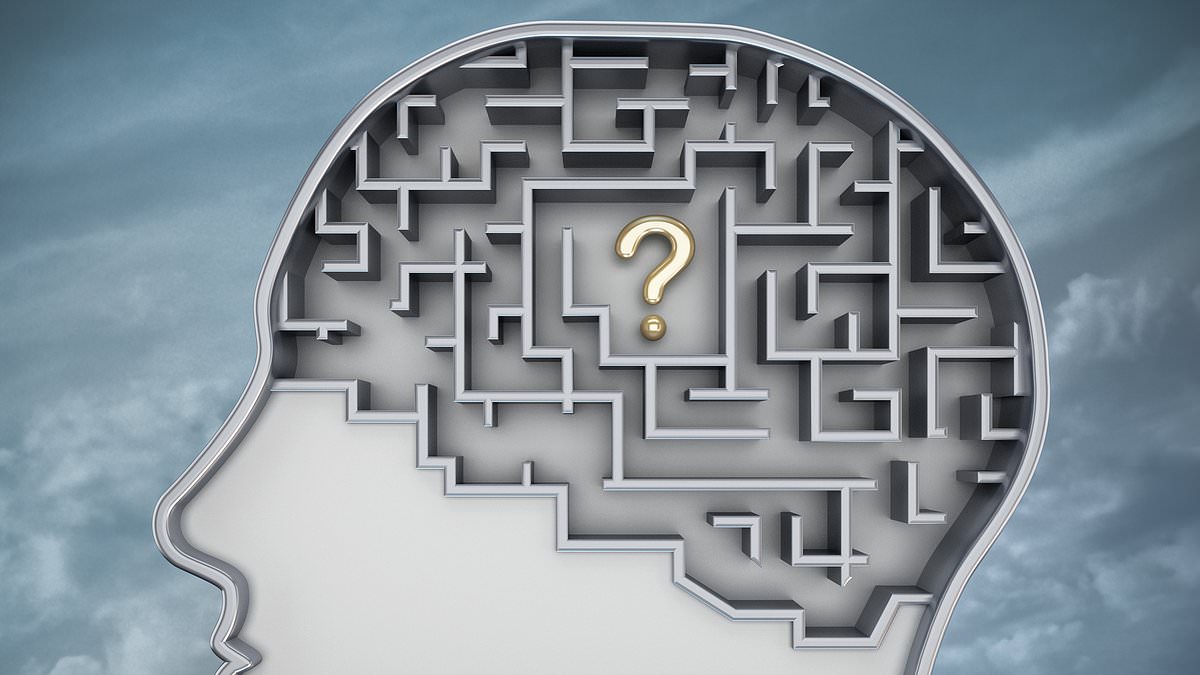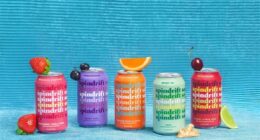Scientists now know that the brain is constantly rewiring itself, a property known as neuroplasticity.
By encouraging the creation and survival of new neural connections, you can build up the size and strength of your brain (known as your cognitive reserve), making it more resistant to memory decline and dementia.
To do this, you should challenge yourself mentally and maintain social connections.
It’s important to keep learning, says Tim Beanland, of the charity Alzheimer’s Society – and this means regularly trying new activities. ‘Your brain rewires itself when it learns a new skill, improving cell connections and making it more resilient,’ he says.
Tim says you’ll reap the most benefits if you challenge yourself regularly with different activities and exercises that require concentration rather than repeating the same puzzles.

The brain is constantly rewiring itself and you should encourage the creation of new neural connections by challenging yourself mentally (Stock Image)
He suggests trying the following:
- Volunteer: A 2023 study found that older people who volunteered were less likely to develop dementia. Researchers from the University of California attributed the results to keeping the brain active, socialising and feeling a sense of purpose.
- Don’t ask Google: If you can’t recall something quickly, try to work out the answer instead of immediately searching online, as it won’t help your memory long-term.
- Play or learn an instrument: Those who practise regularly are less likely to develop memory loss, studies show.
- Learn a language: People who practise more than one language can protect their brains against developing dementia better than those who only speak one, studies show. Investigate online language resources, including the free Duolingo app, which offers courses in more than 40 languages.
- Ignore online brain training hype: ‘You can spend a lot on brain training apps. They can be fun, but evidence that they work is quite weak,’ says Tim.

Those who practise an instrument regularly are less likely to develop memory loss, studies show (Stock Image)

The Duolingo app offers courses in more than 40 languages
TRY THE MIND DIET
People who consume a Mediterranean-style diet, rich in seafood, nuts, fruit and veg, are 23 per cent less likely to get dementia, irrespective of genetic risk, a 2023 UK study found.
A version of the diet, known as the MIND diet (Mediterranean- DASH Intervention for Neurodegenerative Delay), created to help protect brain health, highlights the importance of consuming vegetables, olive oil, berries, beans, wholegrains, poultry, nuts and oily fish (at least once per week), while limiting sweet treats, red meat, cheese and butter.

A Mediterranean-style diet is rich in seafood, nuts, fruit and veg (Stock Image)
REDUCE JUNK FOOD
Ultra-processed foods (UPFs) – such as sugary cereals, ready meals and mass-produced breads – are often high in sugar, saturated fat, salt and additives and low in fibre, which have been linked to obesity and heart disease (dementia risk factors).
University College London researchers found a diet high in UPFs was a ‘key driver’ in obesity, a big risk factor for dementia.
Although research is ongoing into the long-term effects of UPFs, Lancet researchers said it was ‘almost certain’ more links would emerge with dementia.
ENJOY A COFFEE
‘There’s evidence that a couple of coffees a day can help protect your brain, but the benefits fade if you drink more than three,’ says Aidan Goggins, a pharmacist and independent adviser to the supplements industry.
Coffee contains some brain-protective compounds – including caffeine, polyphenols and trigonelline – which can combine to stimulate the brain, protect it from tissue damage by free radicals and offer oxidant protection to brain blood vessels.
There’s evidence that moderate consumption can also help to guard against cognitive decline as well as heart failure, stroke and diabetes, all dementia risks.
If you haven’t previously been a dedicated coffee drinker, beware of taking it up in later life: studies show this may increase your risk of developing mild cognitive impairment, a precursor to dementia, warns Aidan.

There is evidence that drinking a couple of coffees every day can protect your brain, experts say (Stock Image)
GO FOR GREENS
Folate-rich broccoli, peas, asparagus, lettuce, beans and whole grains could help to ward off Alzheimer’s in old age.
A 2005 University of California study found people who regularly consumed a daily 400micrograms of folate, or folic acid, (a B vitamin, crucial for brain health) through diet and supplements halved their dementia risk.
Folate is thought to curb the activity of the amino acid homocysteine – high levels increase your risk of heart disease, stroke and dementia.
EAT MORE BEANS
Beans and pulses are the richest sources of dietary fibre – and research shows that people whose diets are low in fibre are at a much greater risk of developing cardiovascular disease, a risk factor for dementia.

Vegetables and beans are thought to lessen the risk of dementia (Stock Image)
Half a can of beans of any description provides 9g of your recommended daily 30g.
Fibre is essential for a healthy microbiome, which is thought to play a vital role in combating inflammation in the body.
Nutritionist Rob Hobson suggests adding pulses to bolognese to up its fibre. ‘Don’t forget the baked bean either – but opt for a low-sugar variety,’ he adds.








